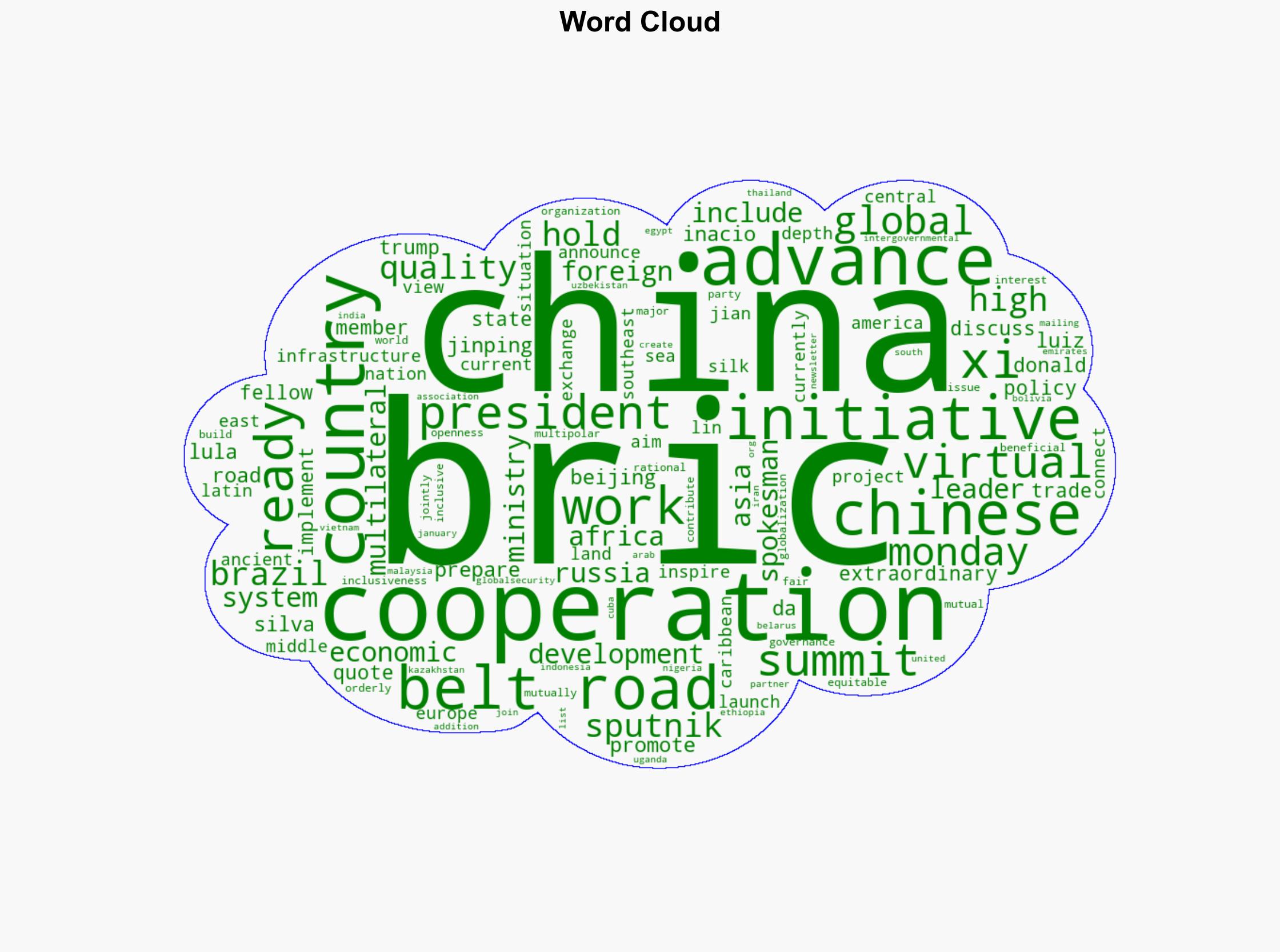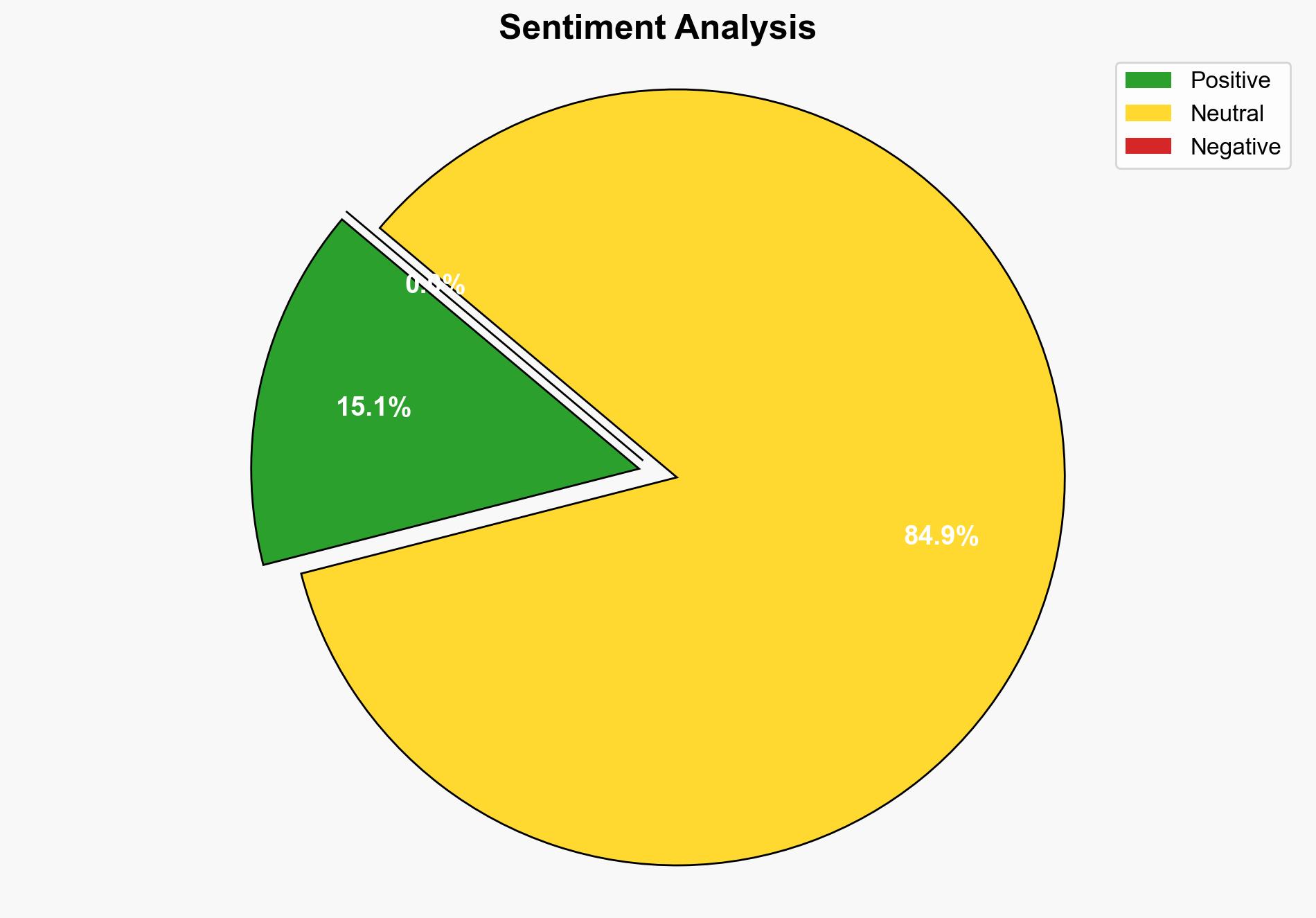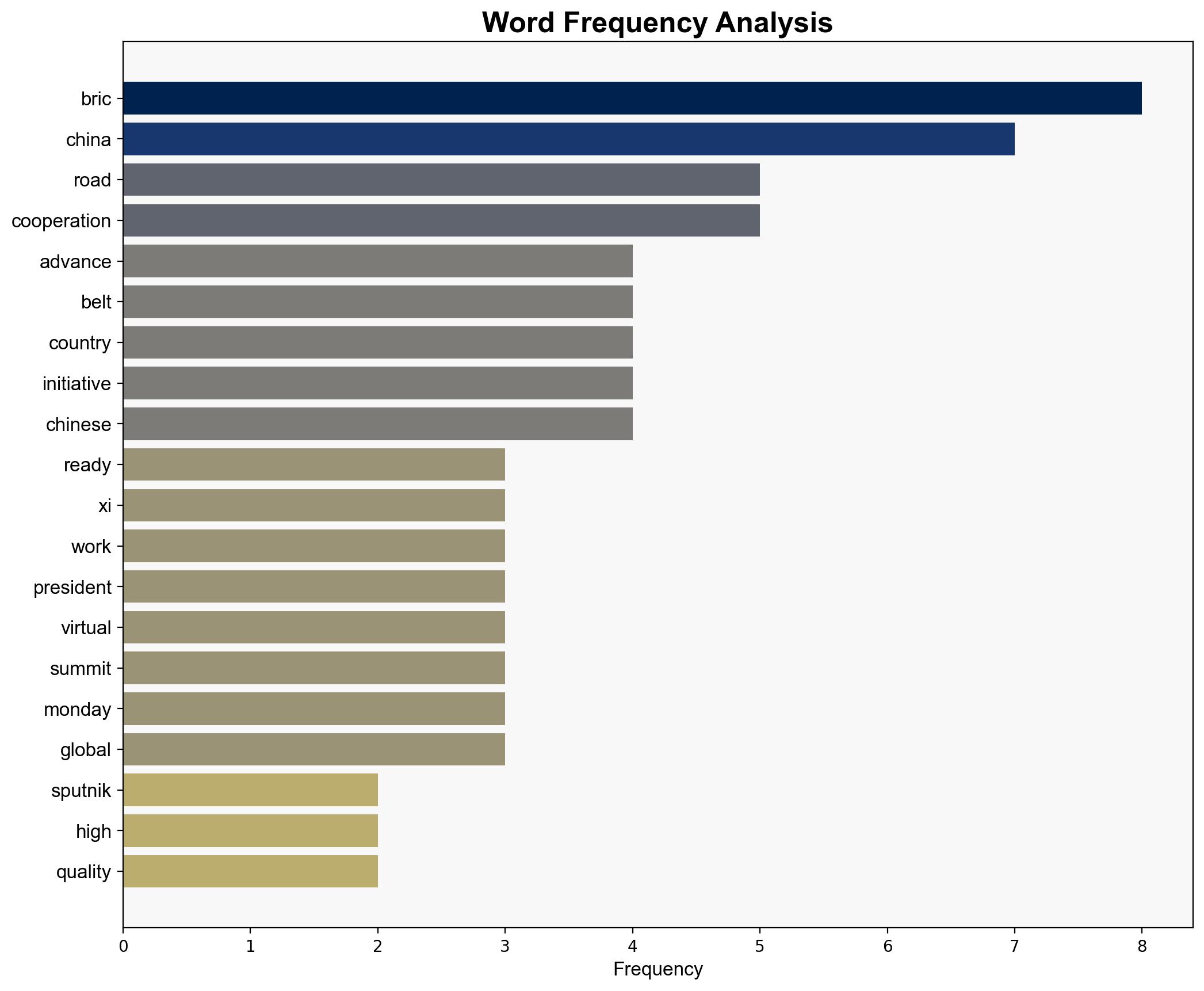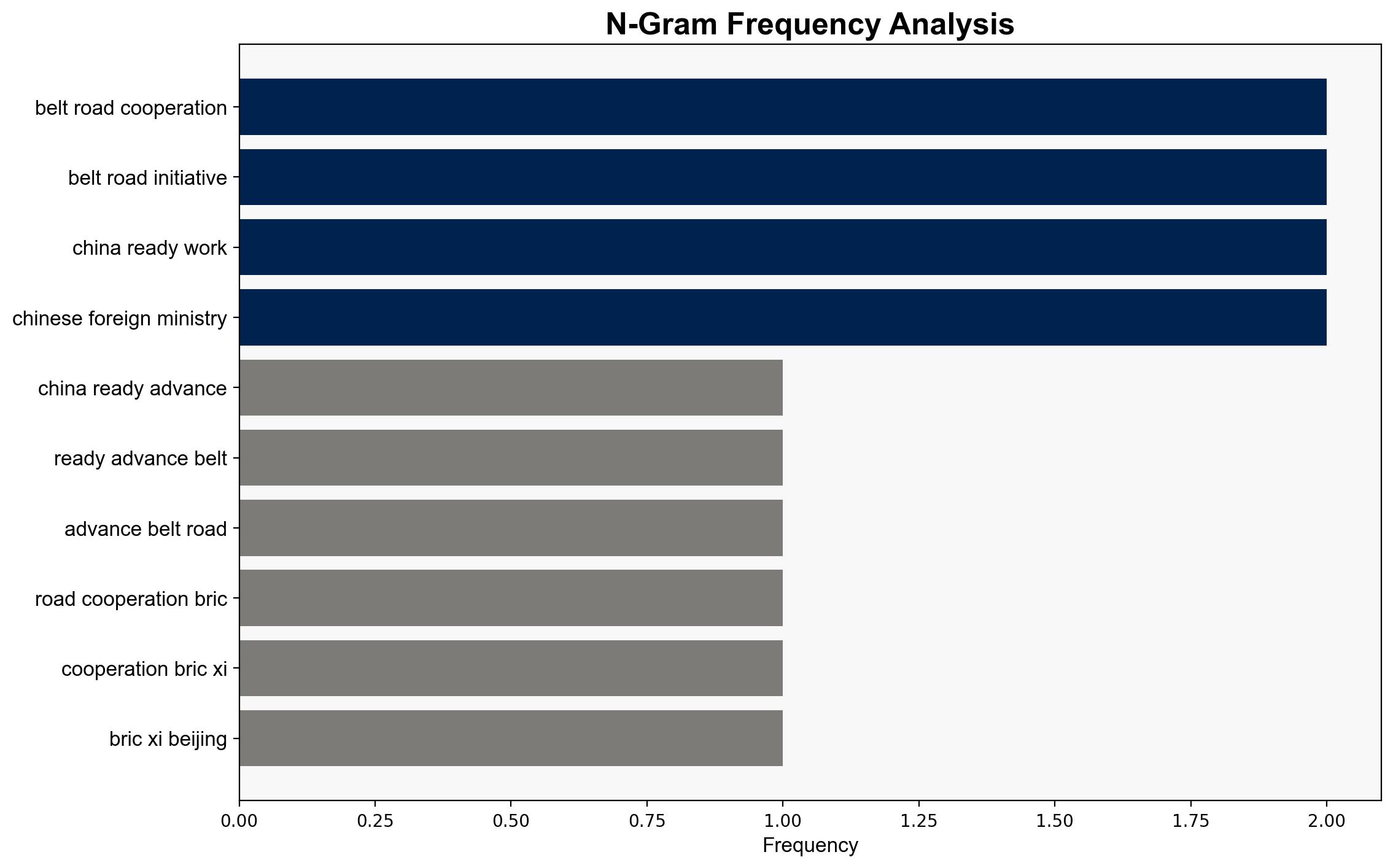China Ready to Advance Belt and Road Cooperation With BRICS – Xi – Globalsecurity.org
Published on: 2025-09-09
Intelligence Report: China Ready to Advance Belt and Road Cooperation With BRICS – Xi – Globalsecurity.org
1. BLUF (Bottom Line Up Front)
China’s intention to advance Belt and Road Initiative (BRI) cooperation with BRICS countries is likely aimed at strengthening its geopolitical influence and economic ties within the bloc. The most supported hypothesis is that China seeks to leverage BRICS to counterbalance Western influence and promote a multipolar world order. Confidence level: Moderate. Recommended action: Monitor BRICS’ response to China’s proposals and assess potential shifts in global power dynamics.
2. Competing Hypotheses
1. **Hypothesis A**: China aims to use the Belt and Road Initiative to enhance economic integration and infrastructure development within BRICS, fostering mutual economic growth and stability.
2. **Hypothesis B**: China is leveraging the Belt and Road Initiative to increase its geopolitical influence within BRICS, positioning itself as a leader in creating a multipolar world order that challenges Western dominance.
Using the Analysis of Competing Hypotheses (ACH) 2.0, Hypothesis B is better supported due to China’s emphasis on global governance and multilateral cooperation, which aligns with its strategic goals of expanding influence and reducing Western hegemony.
3. Key Assumptions and Red Flags
– **Assumptions**: It is assumed that BRICS countries are receptive to deeper integration under China’s leadership. Another assumption is that economic benefits will outweigh potential political frictions within the bloc.
– **Red Flags**: Lack of specific commitments from BRICS countries could indicate reluctance or strategic ambiguity. The absence of detailed implementation plans raises questions about the feasibility of proposed initiatives.
4. Implications and Strategic Risks
– **Economic**: Successful implementation could lead to increased economic interdependence among BRICS, reducing reliance on Western markets.
– **Geopolitical**: Enhanced BRICS cooperation under China’s leadership could shift global power balances, potentially leading to increased tensions with Western powers.
– **Cyber**: Greater integration may expose BRICS countries to cyber vulnerabilities, necessitating robust cybersecurity measures.
– **Psychological**: China’s leadership role may foster a sense of unity within BRICS, but could also breed resentment if perceived as overbearing.
5. Recommendations and Outlook
- Monitor BRICS countries’ public and private responses to China’s proposals to gauge alignment and potential dissent.
- Encourage dialogue between Western powers and BRICS to mitigate potential geopolitical tensions.
- Scenario Projections:
- **Best Case**: BRICS countries embrace the initiative, leading to enhanced economic growth and stability.
- **Worst Case**: Internal disagreements within BRICS lead to fragmentation, weakening the bloc’s global influence.
- **Most Likely**: Incremental progress with selective engagement by BRICS countries, maintaining a balance between cooperation and sovereignty.
6. Key Individuals and Entities
– Xi Jinping
– Luiz Inácio Lula da Silva
– Donald Trump
– Lin Jian
7. Thematic Tags
national security threats, geopolitical strategy, economic integration, regional focus





